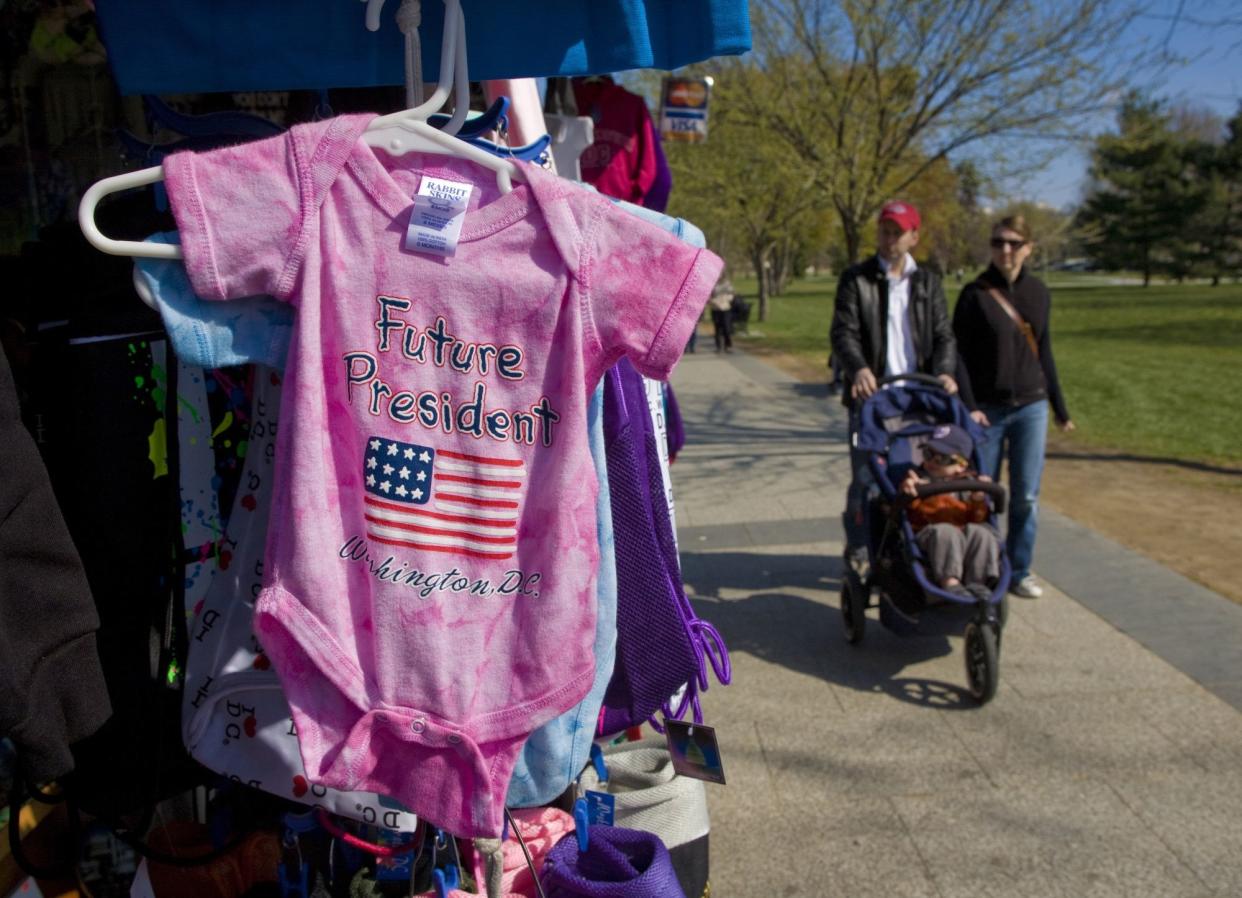Missing Moms: Only 5% of US State Lawmakers Are Mothers With Young Kids

(Bloomberg) -- Of the more than 7,000 state lawmakers across the country, only 5% are mothers with young children at home, new research shows.
Most Read from Bloomberg
The numbers are even more paltry for groups typically underrepresented in government, according to a report from the Vote Mama Foundation, a nonprofit group that researches the political participation of mothers. Of the 7,383 people serving as state legislators nationwide, less than 1% are Black or Indigenous moms with kids under 18, the data show. Yet, 86% of American women are mothers by the time they're 44, according to the Pew Research Center.
Moms across the country have left the workforce in droves since the start of the pandemic in 2020, in part because affordable child care has become even more difficult to find. The US is also behind its peers when it comes to supporting families, with one of the worst maternal mortality rates and no guaranteed paid maternity leave.
“We have to continue to break these barriers down for women and get more moms to run,” said Sarah Clark, who serves in the New York State Assembly and has three children. “The voice that we bring is one that has been underrepresented for so long in politics, policy and the way budget dollars are prioritized.”
Low pay in some regions, lack of paid family leave and child care to accommodate late hours, and an unpredictable schedule are just some of the barriers keeping these women out of office, Vote Mama founder Liuba Grechen Shirley said.
The percentage of state lawmakers with adult children over 18 jumps to 17%, according to Vote Mama. Nearly two-thirds of moms serving in state legislatures are Democrats.
Even as female representation grows in politics, representation of moms in the federal government is small as well. Only 6% of legislators in the US House of Representatives or Senate now are mothers with school-age children.
Education, access to reproductive health care and economic plans that support kids are just some of the policies that fall by the wayside without moms in office, advocates say.
When Colorado state Senator Brittany Pettersen had her baby in 2020, the only way she could take time off without getting docked pay was to have her pregnancy deemed a long-term illness because “that was never contemplated before,” she said. The state Senate earlier this year approved a policy that would give lawmakers 12 weeks of paid leave for pregnancy or childbirth.
“That is reflective of how important for it is to have the life experiences of the electorate, which includes having young women and moms at the Capitol,” Pettersen said. “Representation is not about checking a box; it’s about the experience and the lens that you bring every day.”
Most Read from Bloomberg Businessweek
John Mack, Who Led Morgan Stanley Into a Crisis, Regrets Little
A Digital Drive to Reform the $11 Trillion Global Gold Market
©2022 Bloomberg L.P.


